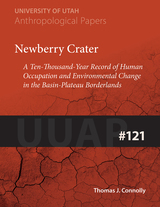
By the Cold War's end, U.S. military bases harbored nearly 20,000 toxic waste sites. All told, cleaning the approximately 27 million acres is projected to cost hundreds of billions of dollars. And yet while progress has been made, efforts to integrate environmental and national security concerns into the military's operations have proven a daunting and intrigue-filled task that has fallen short of professed goals in the post-Cold War era.
In The Greening of the U.S. Military, Robert F. Durant delves into this too-little understood world of defense environmental policy to uncover the epic and ongoing struggle to build an environmentally sensitive culture within the post-Cold War military. Through over 100 interviews and thousands of pages of documents, reports, and trade newsletter accounts, he offers a telling tale of political, bureaucratic, and intergovernmental combat over the pace, scope, and methods of applying environmental and natural resource laws while ensuring military readiness. He then discerns from these clashes over principle, competing values, and narrow self-interest a theoretical framework for studying and understanding organizational change in public organizations. From Dick Cheney's days as Defense Secretary under President George H. W. Bush to William Cohen's Clinton-era-tenure and on to Donald Rumsfeld's Pentagon, the battle over "greening" the military has been one with high-stakes consequences for both national defense and public health, safety, and the environment. Durant's polity-centered perspective and arguments will evoke needed scrutiny, debate, and dialogue over these issues in environmental, military, policymaking, and academic circles.

The prevailing notion that the best government is achieved through principles of management and business practices is hardly new—it echoes the early twentieth-century "gospel of efficiency" challenged by Dwight Waldo in 1948 in his pathbreaking book, The Administrative State. Asking, "Efficiency for what?", Waldo warned that public administrative efficiency must be backed by a framework of consciously held democratic values.
Revisiting Waldo's Administrative State brings together a group of distinguished authors who critically explore public administration's big ideas and issues and question whether contemporary efforts to "reinvent government," promote privatization, and develop new public management approaches constitute a coherent political theory capable of meeting the complex challenges of governing in a democracy. Taking Waldo's book as a starting point, the authors revisit and update his key concepts and consider their applicability for today.
The book follows Waldo's conceptual structure, first probing the material and ideological background of modern public administration, problems of political philosophy, and finally particular challenges inherent in contemporary administrative reform. It concludes with a look ahead to "wicked" policy problems—such as terrorism, global warming, and ecological threats—whose scope is so global and complex that they will defy any existing administrative structures and values. Calling for a return to conscious consideration of democratic accountability, fairness, justice, and transparency in government, the book's conclusion assesses the future direction of public administrative thought.
This book can stand alone as a commentary on reconciling democratic values and governance today or as a companion when reading Waldo's classic volume.
READERS
Browse our collection.
PUBLISHERS
See BiblioVault's publisher services.
STUDENT SERVICES
Files for college accessibility offices.
UChicago Accessibility Resources
home | accessibility | search | about | contact us
BiblioVault ® 2001 - 2024
The University of Chicago Press









